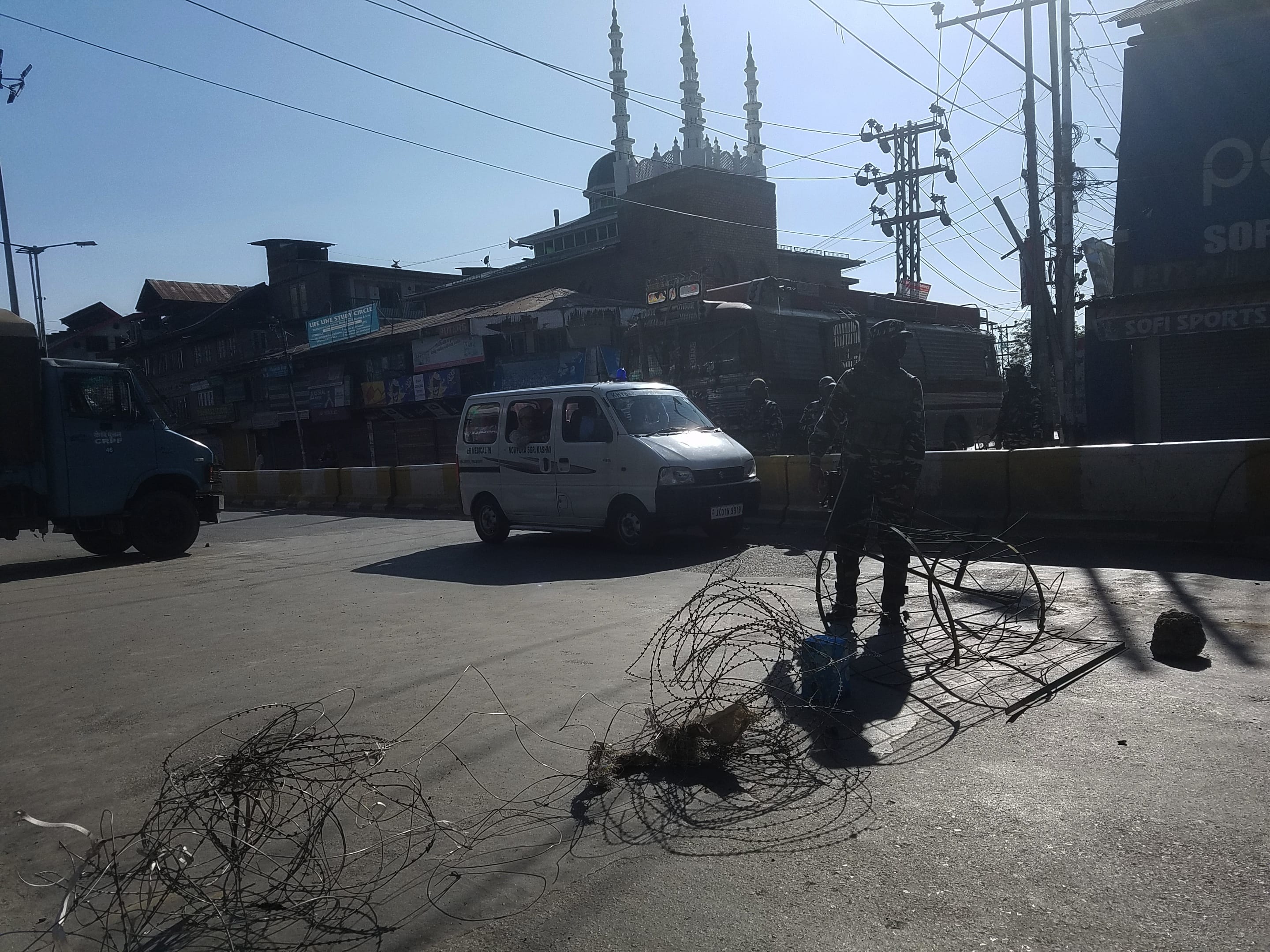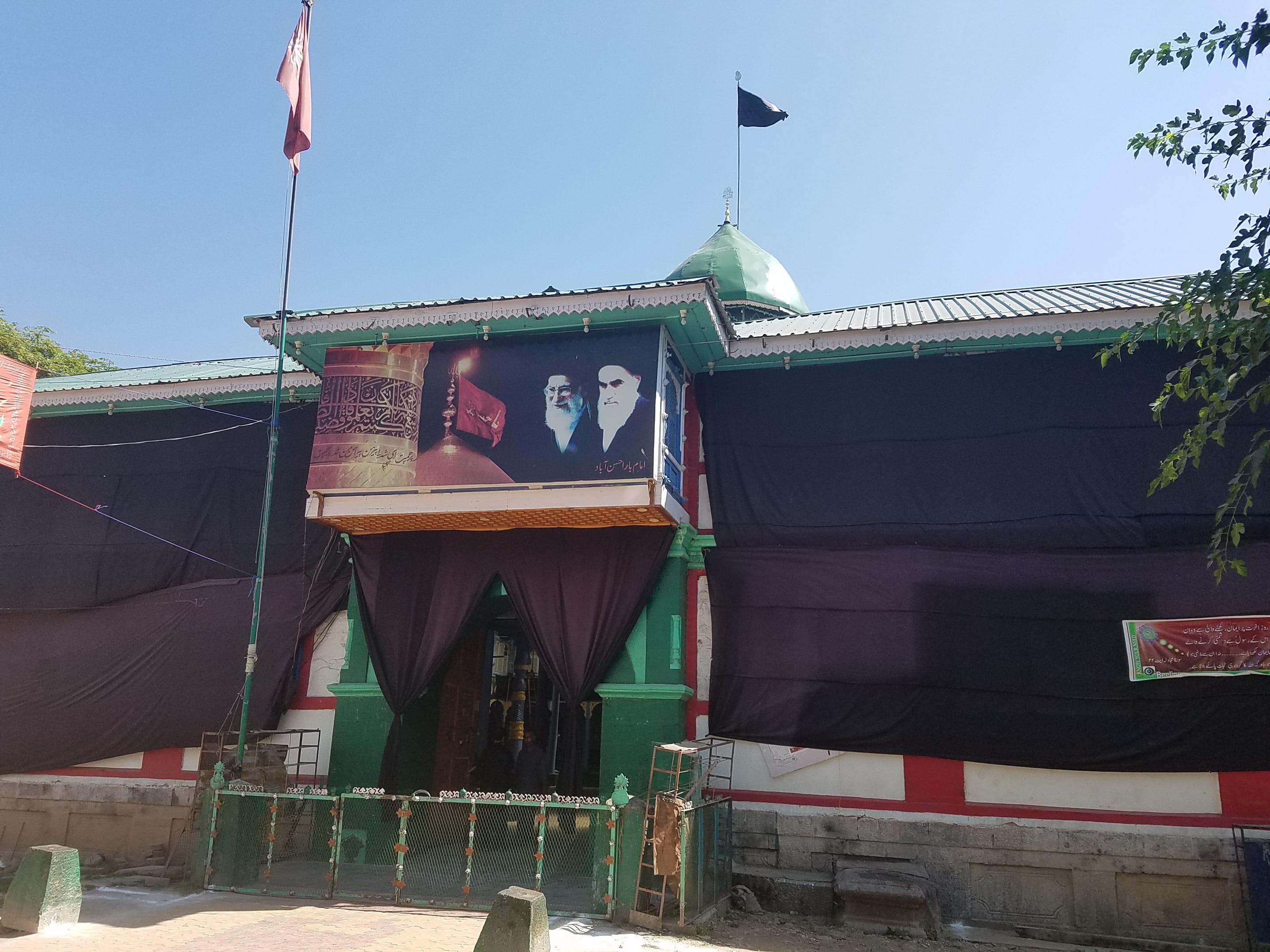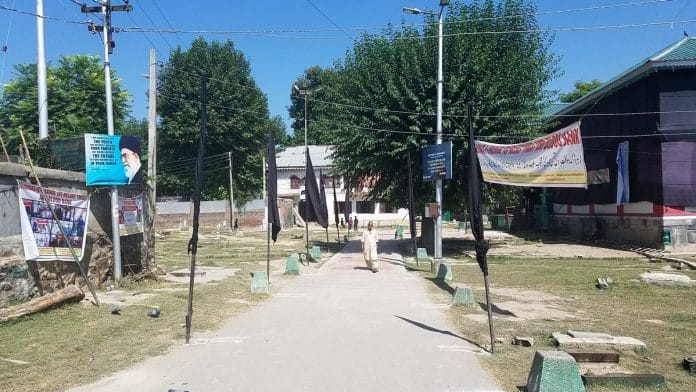Srinagar: The security establishment in Jammu & Kashmir, which has mostly been able to maintain law and order in the Valley since the abrogation of Article 370 on 5 August, faces a new test as devotees will look to mark Muharram Tuesday amid curfew-like restrictions in some areas.
Tuesday marks Ashura, the 10th day of Muharram in the Islamic calendar, which is one of the holiest days for followers of the religion.
During the first 10 days of the Islamic month of Muharram, Shias mourn the tragedy of Karbala (modern-day Iraq), where the grandson of Prophet Muhammad is believed to have been killed along with his companions and family members in 680 AD.
Shia mourners across the world take out processions to commemorate the tragedy every year, but major processions have been officially banned in Kashmir since the eruption of the insurgency in 1989.
The last three days have witnessed minor processions in several locations in downtown Srinagar that have ended in clashes with the J&K Police.
The clashes themselves have been a regular part of Muharram observance over the years, but local residents claim the blowback is stronger this time.
On Saturday, four journalists sustained injuries during an alleged police assault while they tried to cover a Muharram procession, and residents claim police used pellets during these encounters.
On Sunday, the state administration enforced massive curbs on civilian movement — with the media fraternity’s travel restricted despite being in possession of curfew passes.
Some of the curbs were eased Monday in a few areas, but downtown remained under lockdown, with security forces manning all entry and exit points.
Speaking to ThePrint Saturday, a senior government official said maintaining peace during the last days of Muharram was the top priority for the security forces, but Valley residents, particularly Shias, have been left angered by what they term a “crackdown” on their religious rights.

‘Anger will be vented in other ways’
Tanveer Pathan, who was elected a corporator in the urban local body elections of 2018, said the “crackdown” will only force people, especially the youth, to vent their anger in “other ways”.
“Even before Muharram, they started arresting religious leaders. Last week, more than 40 received pellet injuries. Most of them refused to go to hospital for treatment as they fear police will record their names and accuse them of participating in protests,” he said.
“We treated them ourselves. What impact will all this have on younger people? If this continues, militancy in Srinagar will be worse than what you see in south Kashmir,” he added.
Hassan Ahmed, a sexagenarian, said that this was the first time in his life time that such “harsh curbs” had been put in place during Muharram.
“We have seen some bad times during the early days of the militancy. The processions were banned but they would allow us to at least take out some in our locality… But this time even that seems impossible,” he added. “There are police and CRPF personnel after every few feet.”

Also read: Ajit Doval says not one bullet fired in Kashmir in the past month, a record since 1988
‘Muharram is beyond politics’
Three organisations usually lead as many major Muharram processions in the Valley, which invariably end in clashes and detentions.
“The processions are attended by our Sunni brothers as well as Sikhs of Kashmir. They give donations for the poor,” said Afaaq, a shopkeeper based in Hasanabad. “We carry out donation drives too. Muharram is beyond politics,” he added.
The three processions are organised by the All J&K Shia Association, Anjuman e Sharia, and Ittehadul Muslimeen, organisations with a close affiliation to political leaders such as Imran Ansari, Agha Syed Hassan and Abbas Ansari, all of whom have different political ideologies.
While Ansari is a mainstream politician, the other two are senior leaders in separatist outfits. All of them are currently under house arrest. A senior religious leader named Agha Syed Ejaz was also arrested in the last week of August.
There are apprehensions aplenty ahead of the ritual processions and, as a result, Zadibal, where the procession draws lakhs from across Kashmir every year, is under a massive lockdown.
So are other localities with a predominant Shia population, such as Hasanabad and Khomeni Chowk and so on.
Local residents said it was unfair to restrict followers from observing a festival that held deep meaning for them.
“Muharram is not supposed to be about Indo-Pak talks. Imam Hussain (grandson of Prophet Muhammad) represents the essence of Islam. He represents defiance and sacrifice which are values that every human in the world, be it a Muslim or non-Muslim, should imbibe,” said Khalid Hussain, a resident of Hasanabad, which has a predominantly Shia population.
“To tell us we cannot commemorate his martyrdom, his life and his principles is attacking our soul. We won’t forget this,” he added.
Hussain (40) claimed more than two dozen youth had been detained for questioning by police since Saturday.
“The only response of the local SHO (station house officer) has been abuse and pellet-firing. This is oppression, brute oppression,” said Zaffar Ahmed of Hasanabad, where the journalists were allegedly assaulted Saturday.
When asked if people would attempt to take out processions Tuesday, he said, “No one can tell us not to do so. We will try. Whether we will be allowed to do so, that is a different thing. But we will try.”
Asked how he thought Tuesday and the coming days would play out, Ghulam Hussain, 70, a retired government employee, “Whatever will happen will be the will of God. Neither you nor me can say for sure what will happen.
“But I hope better sense prevails,” he added. “And that people don’t lose their temper.”
Also read: Truckers stuck at Kashmir’s Sopore fruit mandi with nowhere to go & nothing to do







Do not trust this report. The majority in Kashmir is Sunni who thinks Moharram observers are not even Muslims. This report is a hit job.
Difficult to make the case that normalcy is slowly returning to Kashmir. In a sense, time is standing still, like a sullen sky before the rains come. Baat cheet bhi kiske saath karenge … Mainstream political leaders, who have made India’s case to an increasingly restive population, are now hors de combat. The newly elected Panchayat representatives are barely foot soldiers, no stature or class. Hopefully, the finest minds in government are thinking about the way ahead.
Do you want NORMALCY of stone pelters throwing stones at police? we value life & limb of our soldiers more than rights of such criminals.
It is time to round up few stone pelters and put them to work in stone quarry.